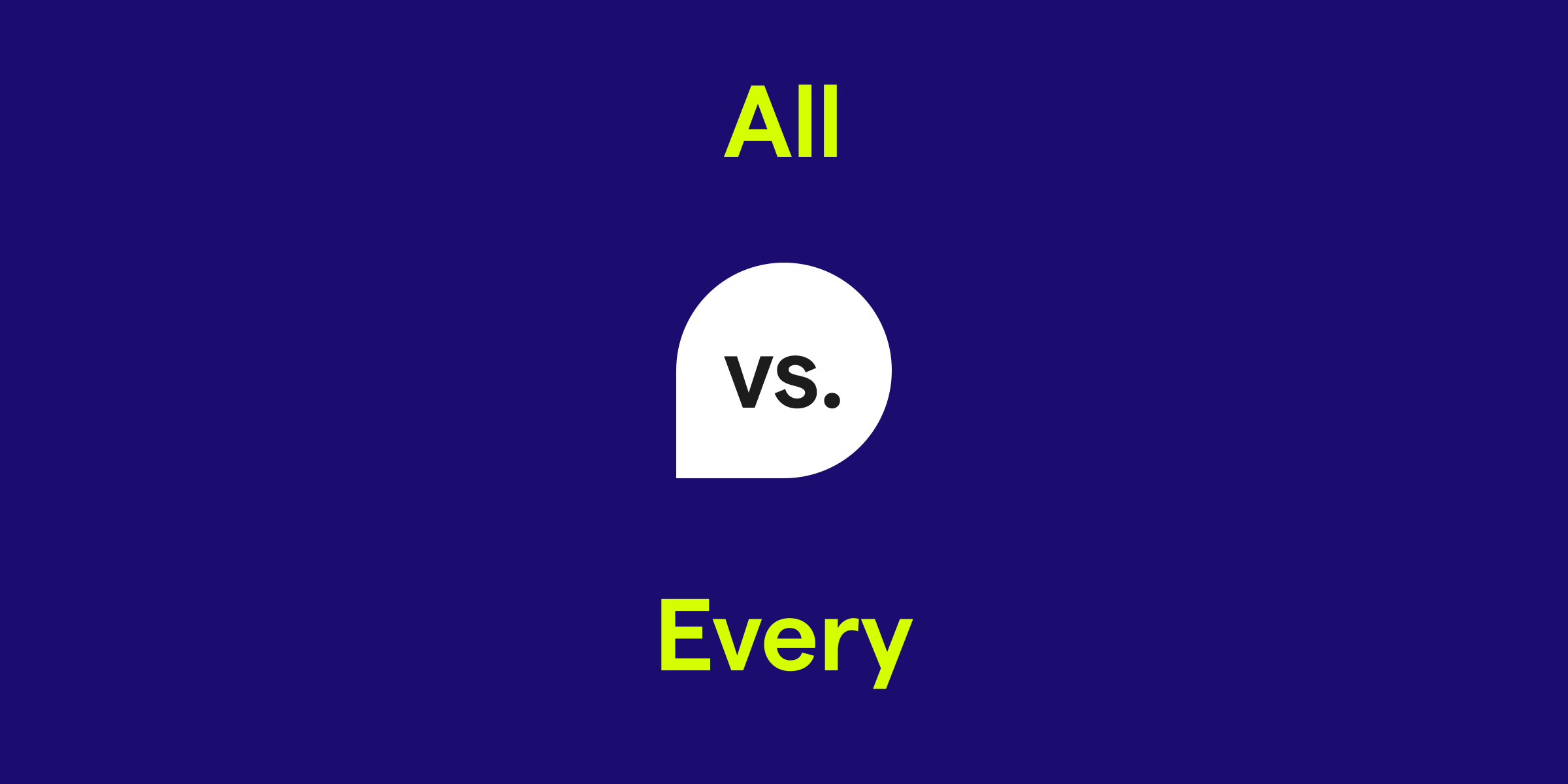All vs. every: What's the Difference?
While all and every might seem interchangeable, they serve different grammatical roles. All refers to the entire group of individuals or things as a collective whole, often used when emphasizing the group. On the other hand, every refers to each individual or element in a group considered separately, suggesting a focus on the components rather than the collective.

How do you use the word all in a sentence?
The word all is often used when referring to every member of a group or the complete extent of time or space. It can function as an adjective, pronoun, or adverb, depending on the context. When used as an adjective, it qualifies a noun, and as a pronoun, it can replace a noun phrase. As an adverb, it modifies an adjective or another adverb to signal totality.
Examples of all in a sentence
- She packed all her belongings into the truck for the big move.
- The crowd cheered as the runners entered the stadium, all eager to witness the final lap.
- The stars were visible all night long.
How do you use the word every in a sentence?
The word every is used to refer to all members of a group, usually implying that there are no exceptions. It's appropriate when talking about frequencies or recurring events and suggests a larger, inclusive perspective rather than the focus on individual elements.
Examples of every in a sentence
- Every member of the team must attend the weekly meeting.
- He exercises every morning to maintain his health.
- Every effort was made to ensure the event's success.
All and every definition, parts of speech, and pronunciation
All definition:
The term all is used to refer to the whole quantity or extent of a particular group or thing. It can also imply being the only thing considered, without exceptions.
All parts of speech:
All pronunciation:
The word 'all' is pronounced as /ɔːl/.
Every definition:
The term every is used to indicate each member of a group of people or things when considered individually. It can often represent regular intervals or occurrences.
Every parts of speech:
Every pronunciation:
The word 'every' is pronounced as /ˈevri/.
The term all is used to refer to the whole quantity or extent of a particular group or thing. It can also imply being the only thing considered, without exceptions.
All parts of speech:
- As a pronoun: All of the cake has been eaten.
- As a determiner: All children need love and support.
All pronunciation:
The word 'all' is pronounced as /ɔːl/.
Every definition:
The term every is used to indicate each member of a group of people or things when considered individually. It can often represent regular intervals or occurrences.
Every parts of speech:
- As a determiner: Every seat was taken at the concert.
- As an adverb (used with 'time'): She succeeds every time she tries.
Every pronunciation:
The word 'every' is pronounced as /ˈevri/.
All vs. every in a nutshell
While both all and every can be used to refer to members of a group, all emphasizes the group as a whole or totality, and every highlights individual members of the group separately. All can be both a pronoun and a determiner, whereas every is typically used as a determiner before singular nouns. Understanding the nuanced difference between these two terms can greatly enhance the precision and clarity of your communication.
Get AI Writing Assistance Wherever You Type
Make sure your vocabulary is on point and every punctuation mark is in the right place, no matter where you’re working. Grammarly works across more than 1 million websites and apps so you can improve your writing without copying, pasting, or breaking focus.

More Commonly Confused Words
Interest piqued? Pore (not pour) over other commonly confused words to help your writing reach peak (not peek) performance.